Calls for Ukraine
Calls for Europe
Calls for USA
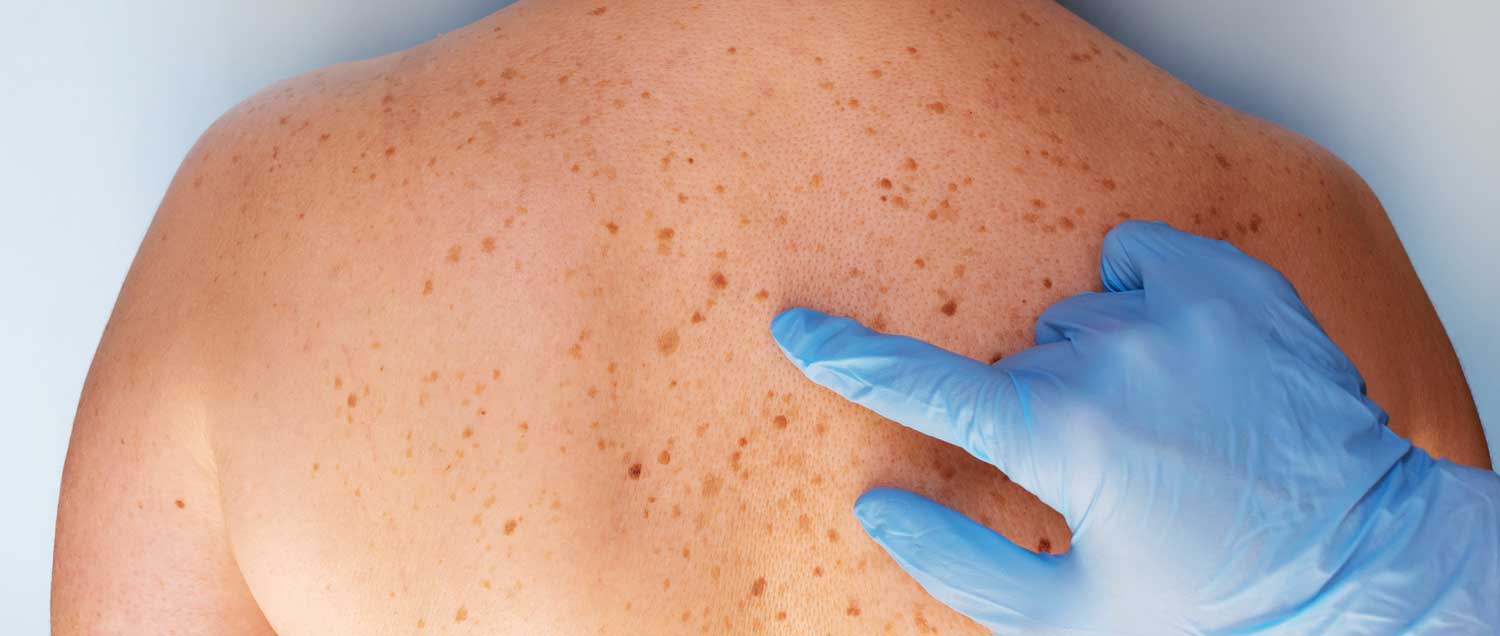
Skin cancer (skin carcinoma) is a group of malignant conditions that affect different layers of the skin. According to statistics, skin cancers account for approximately 10-15% of all malignant pathologies. The primary factor leading to oncological diseases of this type is excessive exposure to ultraviolet radiation, but there may be other causes that provoke skin cancer.
The MedTour platform will help you choose a specialized clinic that focuses on skin cancer treatment and uses the most advanced therapy methods. We have extensive experience in medical tourism and successfully cooperate with leading medical centers in different countries worldwide. For more detailed information, please contact the MedTour coordinating physician.
Skin carcinoma can take several forms and arise due to various causes. To choose the right treatment, it is crucial to accurately determine the type of the disease and identify the factors that provoke it.
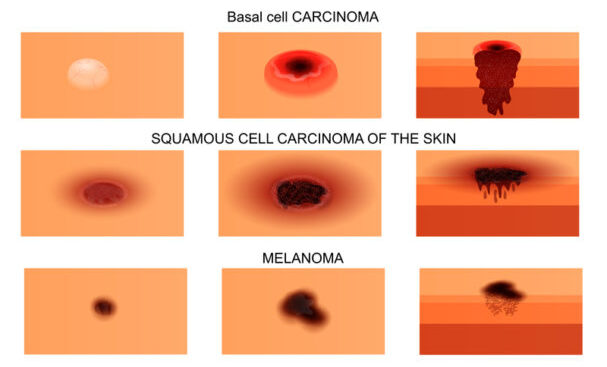
Factors that significantly increase the risk of developing skin carcinoma include:
Each type of skin cancer has its own characteristic symptoms. However, there are general signs that may indicate the development of malignant processes in the skin.
If skin cancer develops, the main skin cancer symptoms include:
The specific symptoms for each type of neoplasm are as follows:
If you are wondering what skin cancer looks like, it is crucial to monitor for suspicious changes and seek medical advice promptly. The MedTour platform will help you choose a specialized clinic that focuses on skin cancer treatment and uses the most advanced therapy methods. For more detailed information, please contact the MedTour coordinating physician.
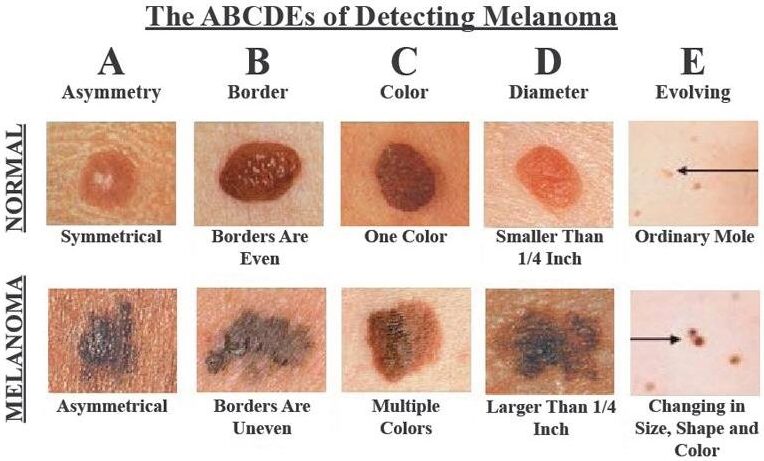
Regular self-examination is crucial for detecting abnormal changes early. Dermatologists recommend the ABCDE rule for mole assessment:
If you notice a suspicious mole that meets these criteria, you should see a doctor promptly. A MedTour coordinating physician will help you choose a doctor for consultation.
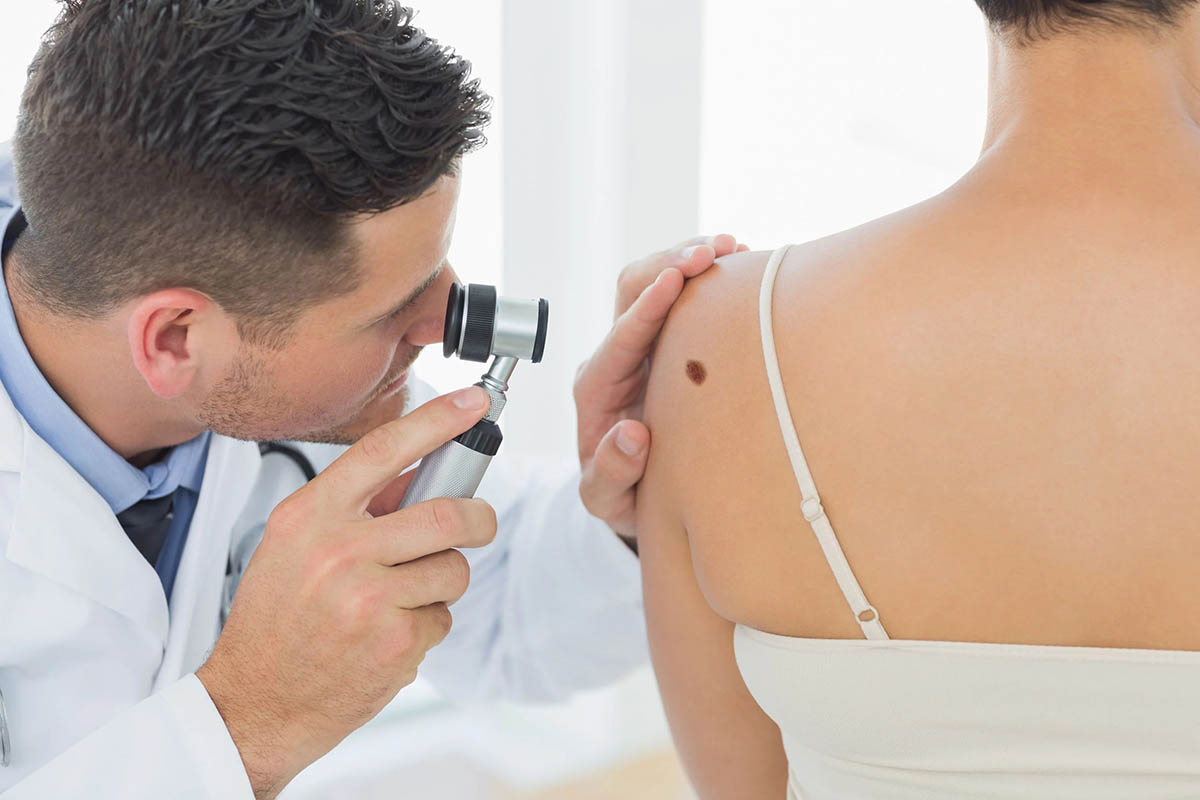
Knowing what skin cancer looks like, you can suspect the presence of oncological pathology, but an accurate diagnosis requires medical evaluation. Identifying the specific type and stage of cancer is essential for selecting the appropriate treatment.
Skin cancer diagnostics may include the following methods:
In some cases, additional tests may be required, such as computed tomography (CT), magnetic resonance imaging (MRI), and other methods to assess the tumor’s spread.
MedTour will help you choose a clinic that offers accurate diagnosis and treatment for any type of malignant disease in your preferred country.
If malignant skin tumors are left untreated, they will progress. Cancer cells can spread to lymph nodes and to other organs such as the lungs, liver, and bones. In advanced stages, the disease can be fatal. Therefore, early detection and treatment of precancerous conditions are crucial. For example, Bowen’s disease is a precancerous condition of squamous cell carcinoma (squamous cell carcinoma in situ). It responds well to treatment, and timely intervention can prevent cancer development.
Prevention of skin cancer primarily involves protection from excessive exposure to sunlight. It is necessary to avoid prolonged sun exposure during peak hours of sunlight and use sunscreen regularly. In addition, you need to regularly conduct self-examination, and if any suspicious changes appear, immediately consult a doctor.
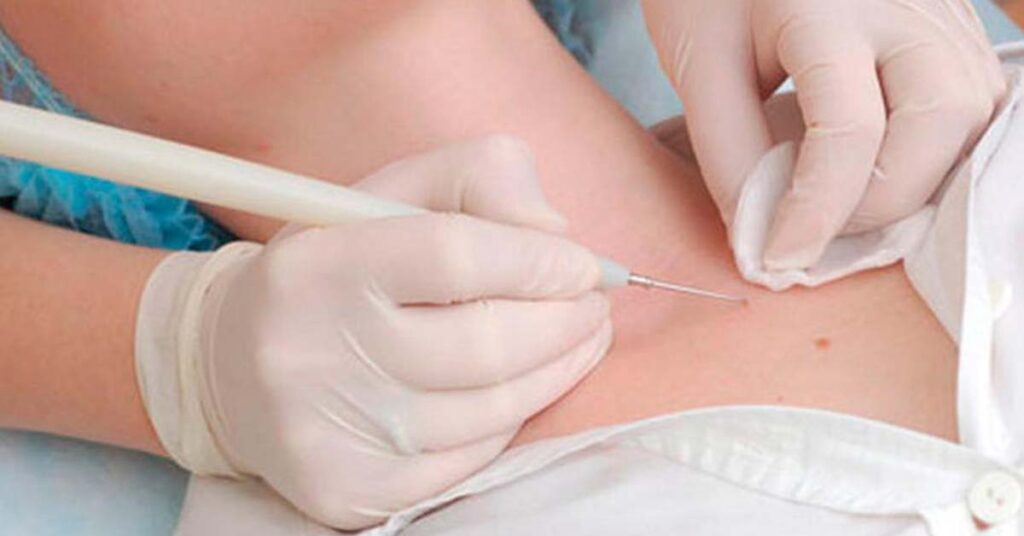
Skin cancer treatment can be carried out using different methods depending on the type and the stage of the malignant disease. Advanced oncology centers worldwide use the following main methods: surgical removal of the tumor, radiation therapy, chemotherapy, targeted therapy, and immunotherapy.
There are several methods of surgical treatment:
If you are considering treatment, the excision of basal cell carcinoma price can vary depending on the clinic and country. The MedTour platform will help you choose a specialized clinic that focuses on skin cancer treatment and uses the most advanced therapy methods. For more detailed information, please contact the MedTour coordinating physician.
Radiation therapy destroys cancer cells and controls tumor growth. It can be used as an independent method of treatment or in combination with surgery. This method is applicable for all types of skin cancer.
Chemotherapy is usually used for metastatic melanoma, when cancer cells have spread to other organs. Chemotherapy can also be applied in the late stages of other types of skin cancer.
Immunotherapy is an advanced cancer treatment method that works by stimulating the body’s immune system to fight cancer cells. This involves activation of T-lymphocytes, special cells of the immune system capable of destroying malignant cells, which can be carried out. Immunotherapy drugs can also target immune checkpoints, making cancer cells more vulnerable.
Another innovative technique widely used in leading oncology centers is targeted therapy. This treatment method targets specific molecular changes in cancer cells. Targeted medications block specific proteins needed for the growth and survival of cancer cells.
Skin cancer treatment is tailored to each individual case. Consequently, treatment costs vary and need to be determined for each specific case.
To find out the cost of treatment for various types of skin cancer in the world’s best clinics, sign up for a free consultation with MedTour. A MedTour coordinating physician will provide you with detailed information about treatment prices, including excision of basal cell carcinoma price, explain the specifics of undergoing therapy in different countries, and answer all your questions.
Please rate the work of MedTour
